Sexing the Body - Anne Fausto-Sterling
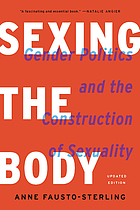
This page is still under maintenance. In the meantime, here are good intersex justice orgs for information!
When discussing this topic things can get dicey, so for the record:
A lot of the time the idea is that if there is no third sex, then sex cannot be non-binary. This is a simple misunderstanding of what a binary is.
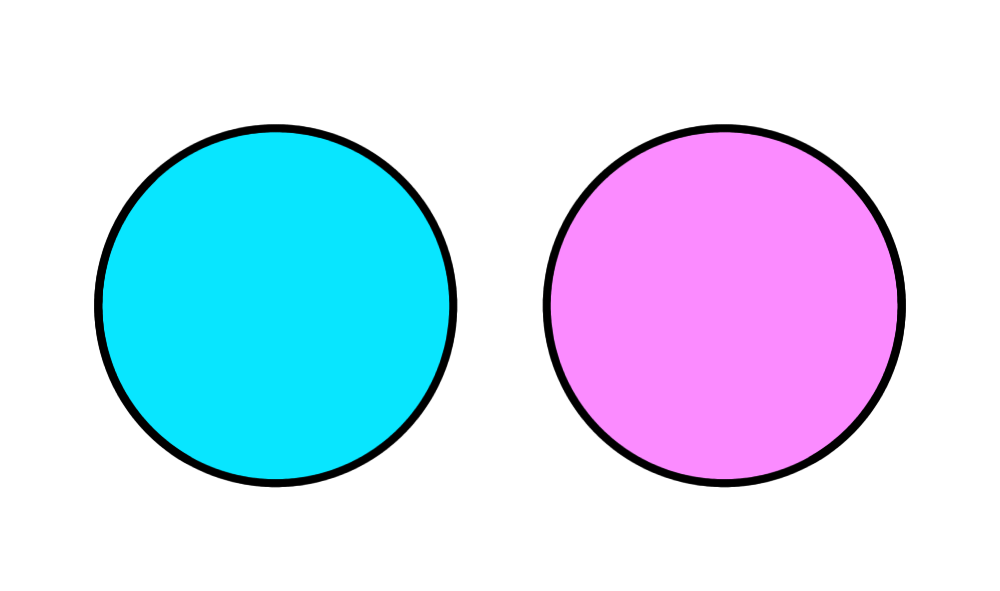
This would be a binary. Two options with no possible overlap. Nothing can exist outside of the two options either. There is nothing of existence outside one or the other. You can compare it to black and white thinking.
Adding a third circle in a different color would make this non binary, but not a spectrum. A spectrum can have the two sides with multiple types of variation in between. When it comes to the gender spectrum, there are even options outside the provided line.
Here is a decent infographic that shows what sex as a spectrum is:
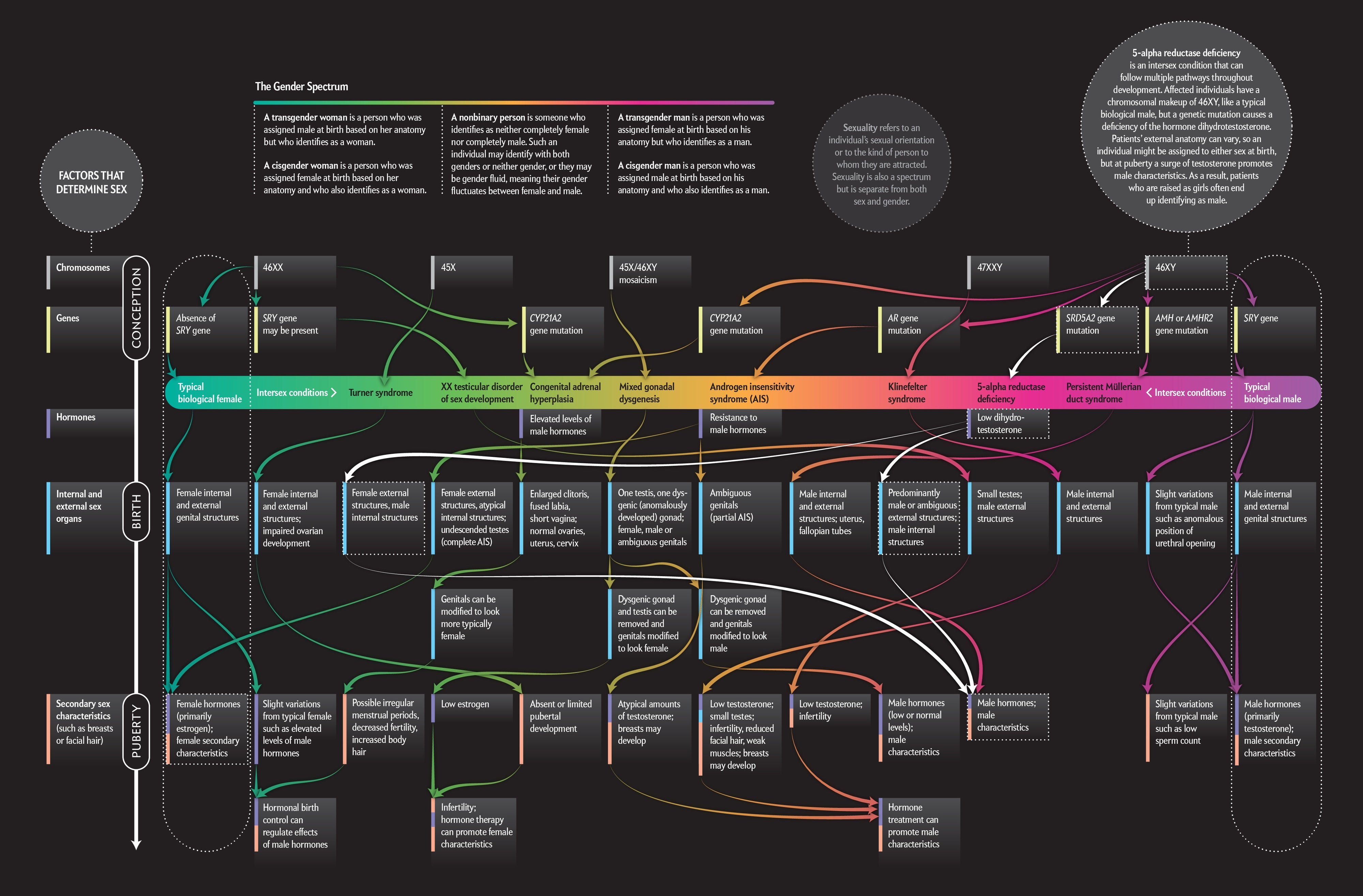
There's no claim that there's a third gamete, only that the two sexes that we are familiar with have plenty of overlap in various different ways. Part of the point in getting sex across as a spectrum is to remove pathologization of those who don't fit into the binary sex options, so the wording in the graphic is not the best to say the least. I mainly use it to stress that there are many ways sex can develop.
“But intersex people are rare!”
Sadly I cannot make a decent enough caption for those who cannot see the infographic, but if you can, you will see that someone does not need to identify as intersex and/or have a diagnosed difference in sexual development (DSD) to fall outside of the perfectly expected two sexes. A man with higher estrogen starts sliding into the spectrum. Gynecomastia, something caused by a hormonal disruption, is a result of sex being non-binary. Hirsutism, or women with more body hair than what is considered "normal," is a result of sex being non-binary. Both of those things described as clinical issues can occur naturally without any underlying factors or harmful health issues, yet often are seen as abnormal and stigmatized.
The fact that trans people are even able to go on HRT and see changes in their sex characteristics shows that our genes do not take one or the other and stick to it no matter what. Our bodies are programmed to react and adapt to another sex-dominant hormone. How is that not cool? How is that seen as controversial and not an amazing part of human genetics?
But about intersex rarity
Intersex people are estimated to be 1.7% of the population, that's the same as people who have red hair or green eyes. We do not claim those people do not exist, that eyes cannot be green or hair cannot be red, simply because the population that has them is small percentage wise.
Where's that Tumblr post-
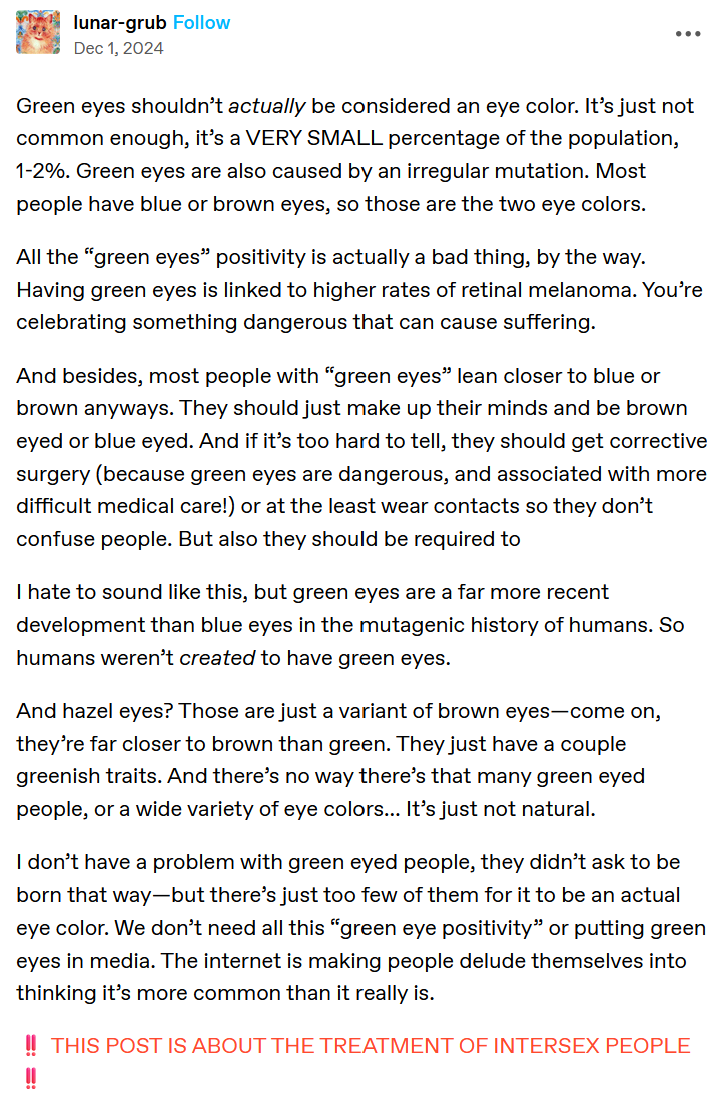
Yes, upon looking up the prevalence of intersex people, there will be various different articles pushing back against that statistic for intersex prevalence, claiming that it is much rarer. The article that's most commonly used to refute this percentage is How common is intersex? a response to Anne Fausto-Sterling by Leonard Sax. It argues that the statistic goes beyond what's typically considered intersex by clinicians. Remember that I am using intersex as the way it's defined by many intersex activists, such as InterACT, who made an entire glossary on different diagnoses that can fall under the intersex umbrella. If I was going by clinicians, then using intersex at all would be outdated by decades now, as it's no longer used as a medical term and usually DSD (Disorders/Differences in Sex Development) is used instead. Intersex as a label goes beyond what is considered a DSD or not, and the 1.7% statistic is so old with little updates that it would likely be larger when accounting for the increased scope. Doctors and clinicians do not use intersex, they haven't for decades, it is not up to them to define it.
Intersex people are not one in a million, they're at least 1 in 100. There is no reason to say that they are "too rare" to count when we think of human diversity.

Sexing the Body - Anne Fausto-Sterling

The Spectrum of Sex - Hida Viloria & Maria Nieto, PhD

Contesting Intersex: The Dubious Diagnosis - Georgiann Davis
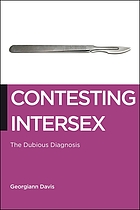
Intersex: Stories and Statistics from Australia - Tiffany Jones+
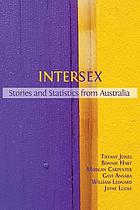
Worldcat - Macquarie University Book Page (Book available for free there)
Narrative Symposium: Intersex - Narrative Inquiry in Bioethics Volume 5, Number 2, Summer 2015

A Human Rights Investigation into the Medical "Normalization" of Intersex People - Human Rights Commission of San Francisco
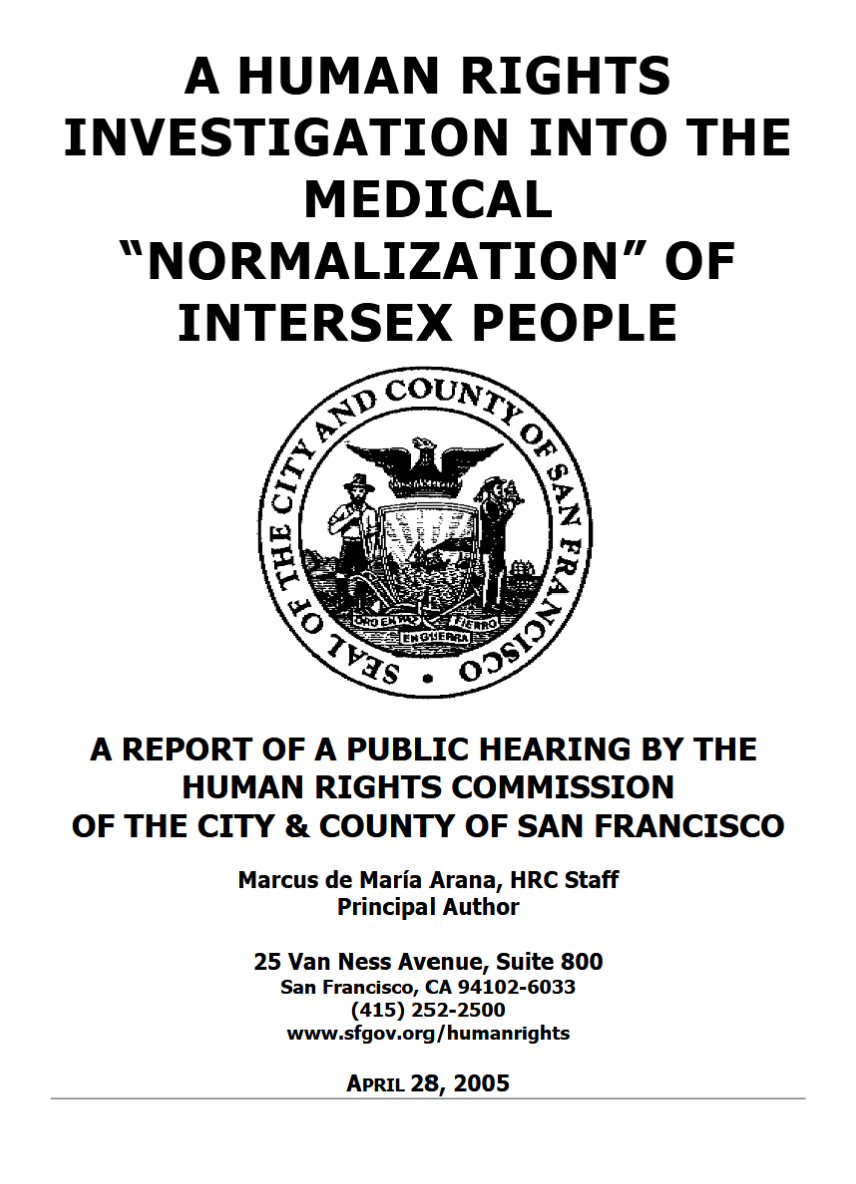
Technical Note on the Human Rights of Intersex People - Office of the High Commissioner for Human Rights
A Long way to go for LGBTQI Equality - European Union Agency for Fundamental Rights

Transgender
Transgender or trans describes someone who identifies as a gender different than their birth assigned gender. They may change their name and pronouns to match with their identified gender. Some trans people medically transition by going on hormone replacement therapy and getting surgeries that make them feel more at home with their bodies.
Cisgender
Someone who identifies as the gender assigned to them at birth. Basically, someone who is not transgender.
Intersex
The term intersex applies to people who have variations in sex characteristics. This can include genitalia, chromosomes, and hormones that differ from what is considered typical for female or male bodies.
I usually use the Intersex Variations Glossary from InterACT as a stable but general definition. An intersex variation generally:
Since the sex characteristics need to differ from what medicine or society finds to be "normal," changes with menopause are not seen as intersex traits. The need for the characteristics to be present from birth or develop spontaneously also makes it so different sex characteristics from medical procedures or injuries are not seen as intersex.
Intersex is no longer used in the medical literature and has been replaced with DSD, however, it is used by intersex activists. The definition of intersex given here is broader than the previous meaning of intersex as a medical diagnosis. For this reason, all people with DSDs can identify as intersex, but not all intersex people can be diagnosed with a DSD.
Disorders/Differences in Sexual Development (DSD)
A group of diagnoses/medical conditions which there is a discrepancy between the external (outside) genitals (penis, scrotum, vulva, labia) and the internal (inside) genitals (testes, vagina, ovaries). - Intersex or Intersex Conditions was the previously used diagnosis.
Intersex or DSD?
Like all minority groups, there's different opinions surrounding what term is better and how to go about obtaining civil rights. People who use DSD to describe themselves typically only want to be seen as someone with a medical condition that shouldn't be a part of their social identity. People who use intersex often see it as an identity and part of themselves, and believe that they're not medically abnormal. There are people who use both depending on the situation. Contesting Intersex by Georgiann Davis is a good resource for this disagreement.
Sex Variant
Like the definition of intersex, sex variant includes people who differ from the societally or medically accepted norm regarding sex characteristics. This can include variations in chromosomes, hormones with/or how the body responds to them, and/or reproductive organs. At times, including in the previously mentioned Intersex Glossary, sex variant is used as a synonym for intersex.
However, I use it here as a broader term, with sex variant including those who have different sex characteristics from injury, medical procedures, or otherwise environmental causes.
I use sex variant as a descriptor and an identity. Another way to identify as sex variant would be terms such as varsex or varsexual.
